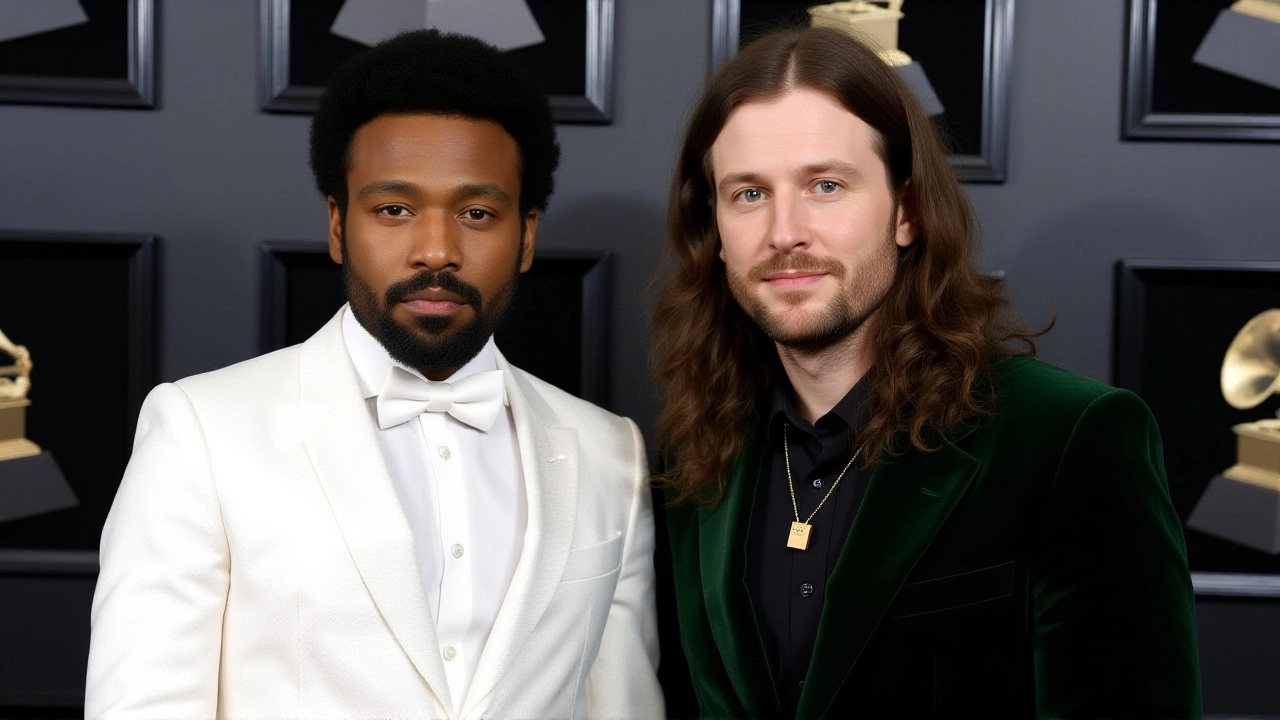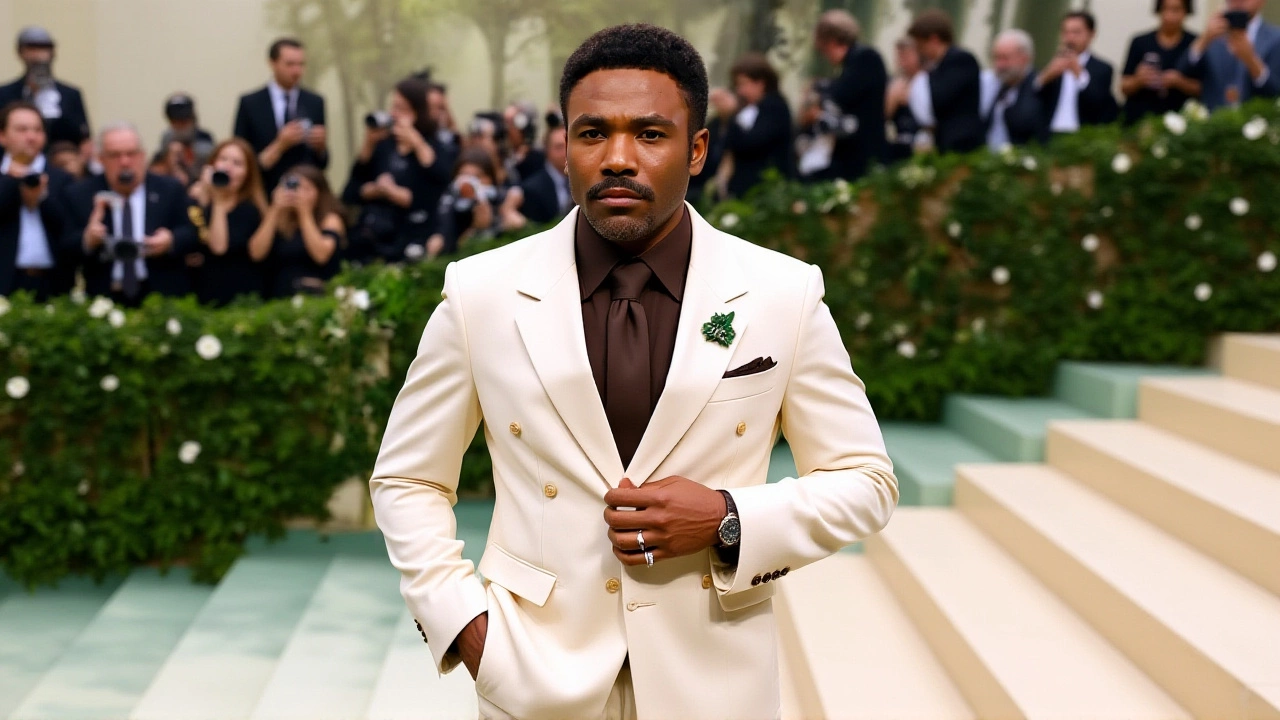It wasn't just a bad headache — it was a stroke. Donald Glover, the 42-year-old actor, musician, and creative force behind Childish Gambino, revealed on November 22, 2025, during a surprise appearance at Camp Flog Gnaw in Los Angeles, that he had suffered a stroke during his 2024 The New World Tour, leading to its abrupt cancellation and two life-changing heart surgeries. The revelation, delivered with quiet honesty under the lights of Dodger Stadium, marked the first time Glover had publicly detailed the medical crisis that had sidelined him for over a year.
"I Did the Show Anyway"
Glover described the moment everything changed: a searing pain in his head during a performance in Louisiana. "I couldn't really see well," he told the crowd. "So when we went to Houston, I went to the hospital and the doctor was like, 'You had a stroke.'" He admitted he kept performing — because that’s what he does. That’s what artists do. But the cost was real. Vision blurred. Balance off. The world felt tilted. He didn’t tell fans. He didn’t even fully believe it himself. "The first thing I thought was like, 'I'm letting everybody down.'" By September 2024, he quietly canceled the rest of The New World Tour, posting only a vague message on X (formerly Twitter) about needing to focus on "physical health." The post is gone now. The truth, however, was just beginning to surface.The Hole in His Heart
Then came the broken foot. A fall, he said, during recovery. It led to an MRI. And that’s when they found it — a hole in his heart. Not a metaphor. Not a poetic phrase. A real, physical defect called a patent foramen ovale (PFO), a congenital opening between the heart’s upper chambers that can allow blood clots to bypass the lungs and travel to the brain. That’s how strokes happen in young, otherwise healthy people. That’s how a headache becomes a life-altering event. "They found a hole in my heart, so I had this surgery, and then I had to have another surgery," Glover said. Two operations. One to close the hole. Another to repair damage caused by the stroke’s aftermath. No one knew. No press releases. No fan updates. Just silence. And recovery.
Young, Healthy, and at Risk
Glover’s story isn’t unique — it’s terrifyingly common. According to the American Heart Association, strokes in people under 50 have risen by nearly 40% over the past two decades. What’s more alarming? The symptoms often don’t look like the textbook FAST checklist (Face drooping, Arm weakness, Speech difficulty, Time to call 911). For Glover, and actor Jamie Foxx, who suffered a stroke in 2024, it started with a headache — severe, persistent, dismissed as stress or exhaustion. "Doctors told me most strokes in older people come with obvious signs," Glover said. "But for us? It was just… pain. Like a migraine that wouldn’t quit. No one tells you that." Medical experts now warn: if you’re under 50 and have a headache that feels "wrong," lasts more than a day, or comes with vision changes, dizziness, or confusion — don’t wait. Don’t assume it’s just tension. Get checked."You Got One Life, Guys"
Glover didn’t come on stage to ask for sympathy. He came to say thank you. "They say everybody has two lives, and the second life starts when you realize you have one," he told the crowd, voice cracking slightly. "You got one life, guys. And I gotta be honest — the life I’ve lived with you guys has been such a blessing." He mentioned Ireland — the one country on the tour he never made it to. "Still haven’t been," he said, smiling. But he didn’t sound bitter. He sounded grateful.
What’s Next?
As of November 2025, Glover has not announced any return to touring, music, or film. He’s been quiet. But he’s alive. And that, for now, is enough. His openness has sparked a wave of conversations among fans and medical professionals alike: young people are more vulnerable than they think. And sometimes, the bravest thing you can do is stop — even if you’re the one holding the mic.Frequently Asked Questions
What caused Donald Glover’s stroke?
Glover’s stroke was linked to a congenital heart defect known as a patent foramen ovale (PFO), a hole between the upper chambers of the heart that allowed a blood clot to travel to his brain. This condition, often undetected until adulthood, is increasingly recognized as a cause of stroke in otherwise healthy young adults — especially those with no other risk factors like smoking or high blood pressure.
Why didn’t Glover seek help sooner after the pain started in Louisiana?
Glover, like many performers, felt pressure to continue touring despite symptoms. He dismissed the pain as a migraine or exhaustion. He didn’t recognize the signs of stroke because they didn’t match the typical FAST model — no facial drooping or slurred speech. This delay is common among younger patients, whose symptoms are often misdiagnosed as stress or migraines.
How common are strokes in people under 50?
Strokes in adults under 50 have increased by nearly 40% since 2000, according to the American Heart Association. While still less common than in older populations, the rise is alarming. Risk factors include obesity, sedentary lifestyles, undiagnosed heart defects, and chronic stress — all factors increasingly present in high-pressure careers like entertainment.
What are the hidden symptoms of stroke in young adults?
Unlike older patients, younger stroke victims often experience atypical symptoms: persistent headaches, vision disturbances, dizziness, or sudden fatigue — not just facial drooping or slurred speech. Actor Jamie Foxx and Donald Glover both reported severe headaches as their first warning. Experts now urge anyone under 50 with unexplained neurological symptoms to seek immediate evaluation.
Will Donald Glover return to touring or performing?
As of November 2025, Glover has not announced any plans to return to live performances or new music projects. His focus remains on recovery and personal well-being. While fans hope for his return, his public statements suggest he’s prioritizing health over career momentum — a rare and powerful shift in an industry that rarely pauses.
How did the public react to Glover’s disclosure?
The response was overwhelmingly supportive, with fans sharing personal stories of stroke survivors and urging others to listen to their bodies. Medical professionals praised his transparency for raising awareness about strokes in younger populations. Social media trends like #GloverStrong and #StrokeAwareness surged, with healthcare organizations citing his story as a turning point in public education.
